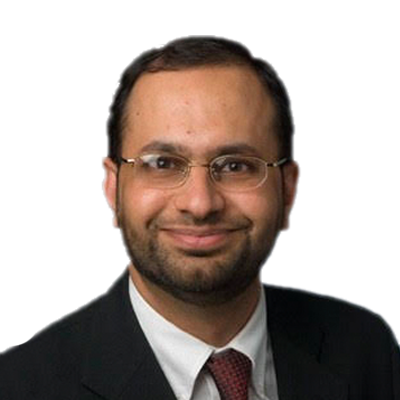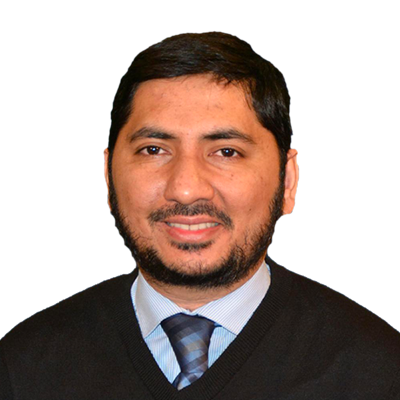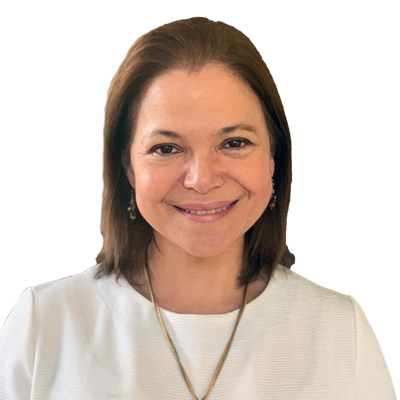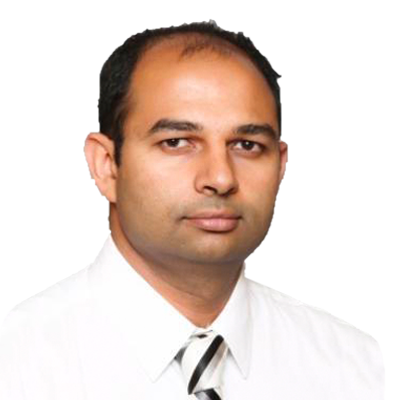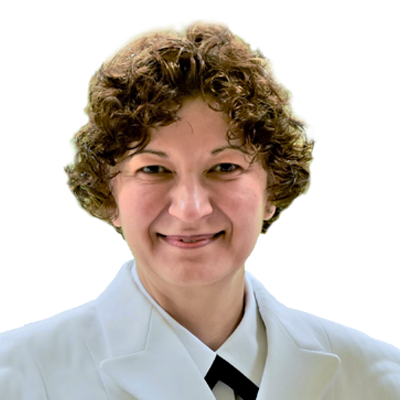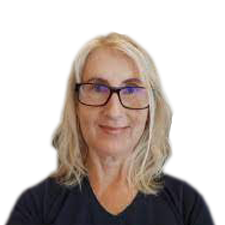Obsessive Compulsive Disorder (OCD) is a chronic mental health condition characterized by intrusive and repetitive thoughts and behaviors. It can affect anyone, regardless of age, gender, or background. Despite being a common disorder, OCD is often misunderstood and stigmatized. This blog post aims to provide a comprehensive understanding of OCD by exploring its basics, including symptoms, impact, causes, diagnosis, and treatment options. We aim to offer accurate and accessible information about OCD and how it affects individuals.
Prevalence of Obsessive-Compulsive Disorder (OCD)
According to the National Institute of Mental Health (NIMH), OCD affects approximately 1% of adults in the United States, which accounts for around 2.2 million people. It is worth noting that around half of all cases of OCD start before the age of 18.
Exploring the Neurobiology of Obsessive-Compulsive Disorder (OCD)
To better understand OCD, let's look at how it affects the brain. Research suggests that certain parts of the brain and how chemicals work in the brain play a role in OCD.
In OCD, some brain areas don’t work quite right. These areas include the orbitofrontal cortex (OFC), anterior cingulate cortex (ACC), and the basal ganglia. The OFC helps us decide how important things are and how to respond to them, while the ACC helps us detect errors and handle conflicts. The basal ganglia help control our movements and habits.
In people with OCD, these brain areas are hyperactive and don't communicate well with each other. This leads to the unwanted thoughts and repetitive behaviors we see in OCD. Another important chemical in the brain called serotonin is also involved in OCD. It helps regulate our mood and anxiety. When serotonin isn't working right, it can contribute to OCD symptoms.
Causes and Risk Factors Of Obsessive Compulsive Disorder (OCD)
The exact causes of OCD are still unknown, but research suggests the involvement of various factors. Biological factors, including genetic predispositions and structural differences in the brain, play a role in the development of OCD. Environmental factors, such as traumatic events and stressful life events, can also contribute. Additionally, neurochemical imbalances affecting serotonin levels in the brain are thought to be involved.
Symptoms of Obsessive-Compulsive Disorder (OCD)
OCD is characterized by two main categories of symptoms: obsessions and compulsions. Obsessions are intrusive, unwanted thoughts or images that cause distress, whereas compulsions are repetitive behaviors or mental acts that individuals feel compelled to perform in response to the obsessions. These symptoms can manifest differently in each individual, but here is a comprehensive description of the various aspects of OCD:
Obsessions
Contamination: Excessive fear of germs, dirt, or harmful substances leads to cleanliness and hygiene concerns.
Symmetry and Order: An overwhelming need for things to be arranged in a specific way or perfect order.
Intrusive Thoughts: Unwanted and distressing thoughts or images that go against personal values, such as aggressive, violent, or sexual impulses.
Doubts: Persistent uncertainty and indecisiveness, often accompanied by excessive checking or seeking reassurance.
Fear of Harming Self or Others: Uncontrollable fear of causing harm to oneself or others, leading to repetitive rituals to prevent harm.
Superstitions and Magical Thinking: Belief in certain rituals or behaviors to prevent adverse events or bring good luck.
Fear of Losing Control: An overwhelming fear of losing control over one's actions or thoughts, leading to repetitive behaviors to regain control.
Compulsions
Cleaning and Washing: Excessive cleaning, handwashing, or other rituals to eliminate perceived contamination or germs.
Checking: Repeatedly checking locks, appliances, or other items to ensure they are secure or functioning properly.
Counting and Repeating: Engaging in repetitive counting, tapping, or repeating specific words or phrases to reduce anxiety or prevent harm.
Arranging and Organizing: Compulsive needs to arrange objects in a specific way or maintain a strict order.
Hoarding: Difficulty discarding possessions, leading to excessive accumulation of items and clutter.
Mental Rituals: Engaging in mental rituals, such as repetitive praying, counting, or silently reciting words or phrases.
Touching or Tapping: Feeling compelled to touch, tap, or handle objects or surfaces in a particular manner.
Seeking Reassurance: Continuously seeking reassurance or asking for confirmation from others to alleviate doubts or fears.
It's important to note that these symptoms can vary in intensity and may interfere with daily life, causing distress, anxiety, and time-consuming disruptions. Individuals with OCD often experience a strong urge to perform their compulsions to reduce the anxiety caused by their obsessions, although these compulsions provide only temporary relief. Treatment options, such as therapy and medication, can help individuals manage their symptoms and improve their quality of life.
Common Subtypes of Obsessive Compulsive Disorder (OCD)
In addition to the common obsessions mentioned earlier, OCD can present itself in several subtypes that offer further insight into the disorder. These subtypes include:
· Hoarding Disorder: Individuals with hoarding disorder experience intense anxiety and difficulty discarding or parting with possessions, leading to excessive accumulation of items. This behavior can result in cluttered living spaces, significantly impacting their daily functioning.
· Religious or Scrupulosity-Related OCD: This subtype involves obsessions and compulsions centered around religious or moral beliefs. Individuals with scrupulosity-related OCD may experience excessive guilt, fear of committing blasphemy, or concerns about sin. They may engage in repetitive religious rituals or seek constant reassurance to alleviate their distress.
· Health-Related OCD (Hypochondriasis): Also known as illness anxiety disorder or somatic OCD, this subtype involves obsessions and compulsions related to health and physical well-being. Individuals may excessively worry about having serious medical conditions, even with minimal or no evidence of illness. They may repeatedly check bodily sensations, seek medical reassurance, or avoid situations that trigger health-related anxiety.
· Just-Right OCD: This subtype revolves around needing things to feel "just right." Individuals with just-right OCD often experience discomfort or unease when objects are not arranged or aligned symmetrically or when actions are not performed in a precise, specific manner. They may repeatedly adjust or manipulate objects until they feel a sense of completion or satisfaction.
· Purely Obsessional OCD (Pure-O): Pure-O OCD is characterized by primarily experiencing distressing and intrusive thoughts or mental images without obvious outward compulsions. Individuals with Pure-O OCD may have distressing thoughts about harm, violence, sexual themes, or other taboo subjects. They often engage in mental rituals or avoidance behaviors to cope with intrusive thoughts.
It's important to note that these subtypes are not mutually exclusive, and individuals with OCD may experience symptoms from multiple subtypes or exhibit unique combinations of symptoms. Understanding these subtypes can help individuals and their healthcare providers tailor treatment approaches and interventions to address their specific needs.
The Emotional Impact of Obsessive-Compulsive Disorder (OCD)
OCD has a significant emotional impact on individuals, often leading to anxiety, depression, shame, guilt, low self-esteem, and feelings of isolation. It is essential to address the challenges individuals face daily due to OCD and the potential impact on personal relationships and occupational functioning.
Understanding Co-occurring Disorders
It's common for OCD to happen alongside other mental health problems. This shows why it's important to consider the big picture and treat everything together. Here are some mental health problems that often happen with OCD:
Anxiety Disorders: Along with OCD, people may also have other anxiety problems like feeling worried all the time (generalized anxiety disorder), having sudden panic attacks, being afraid of social situations (social anxiety disorder), or having specific fears (phobias). These problems can make the distress from OCD even worse.
Depression: Many people with OCD also feel depressed. The constant unwanted thoughts and rituals of OCD can make them feel hopeless. It's important to treat both OCD and depression at the same time.
Body Dysmorphic Disorder (BDD): BDD is when someone is apprehensive about their appearance and thinks there's something wrong with it. People with BDD often do the same kinds of rituals as people with OCD, like spending much time checking their appearance in the mirror.
Tic Disorders: Some people with OCD also have tic disorders, like Tourette's syndrome. Tics are sudden movements or sounds that a person can't control. They often happen along with OCD symptoms.
Diagnosing Obsessive Compulsive Disorder (OCD)
When diagnosing OCD, a thorough evaluation is necessary that may include the following:
Professional Evaluation: Diagnosing OCD typically involves seeking help from a mental health professional, such as a psychiatrist, psychologist, or licensed therapist. These professionals have expertise in diagnosing and treating mental health conditions.
Symptoms Assessment: The evaluation begins with a detailed assessment of the individual's symptoms. The mental health professional will inquire about the nature and frequency of the obsessions and compulsions experienced. They may use standardized assessment tools or diagnostic criteria, such as the Diagnostic and Statistical Manual of Mental Disorders (DSM-5), to aid in the diagnosis.
Medical and Mental Health History: The professional will also consider the individual's medical and mental health history. They will inquire about any previous or existing mental health conditions, medical conditions, or medications that may contribute to or interact with OCD symptoms.
Impact on Daily Life: A diagnosis of OCD is typically made when the obsessions and compulsions significantly impact the individual's daily life, causing distress, impairing functioning, or interfering with relationships, work, or other important areas of functioning.
Differential Diagnosis: The evaluation process also involves ruling out other potential causes for the symptoms. This is important to ensure an accurate diagnosis and appropriate treatment. Other conditions with similar symptoms, such as anxiety disorders, hoarding disorders, or body dysmorphic disorder, may need to be considered and distinguished from OCD.
Duration and Persistence: The diagnosis of OCD requires that the obsessions and compulsions are time-consuming (taking up more than one hour per day) or cause significant distress or impairment and persist for a substantial period (typically at least one hour per day for at least two weeks).
It's important to note that self-diagnosis is insufficient, and seeking professional help from a qualified mental health provider for an accurate diagnosis is crucial. They can evaluate the individual's symptoms, assess their daily life's impact, and provide appropriate guidance and treatment options tailored to their needs.
The Importance of a Comprehensive Approach to Treatment
OCD is a complex disorder that necessitates a comprehensive approach to treatment. Combining medication and therapy is often the most effective way to manage symptoms. It is equally important to involve family members in the treatment process, as their support and understanding can contribute to a positive outcome.
Cognitive-Behavioral Therapy (CBT): CBT is a widely recognized and effective treatment for OCD. It involves working with a therapist to identify and challenge the obsessive thoughts or beliefs that drive the compulsive behaviors. The therapy focuses on developing healthier and more adaptive thought patterns and learning practical coping strategies to manage anxiety and reduce the urge to engage in compulsions. CBT for OCD often includes specific techniques such as cognitive restructuring, thought-stopping, and thought recording.
Exposure and Response Prevention (ERP): ERP is a specialized form of CBT and is considered the gold standard treatment for OCD. It involves systematically exposing individuals to situations, objects, or thoughts that trigger their obsessions while refraining from engaging in the corresponding compulsive behaviors. The goal is to gradually reduce the anxiety and distress associated with the obsessions and weaken the conditioned response that drives the compulsions. Over time, individuals learn that their anxiety diminishes without performing the compulsions, decreasing the frequency and intensity of the obsessions.
Medication: Besides therapy, medication can be an effective adjunctive treatment for OCD. Selective serotonin reuptake inhibitors (SSRIs), a type of antidepressant, are commonly prescribed to help alleviate the symptoms of OCD. These medications work by increasing serotonin levels in the brain, which can help reduce obsessive thoughts and compulsive behaviors. It's important to note that medication should be prescribed and monitored by a qualified healthcare professional, typically a psychiatrist, who can assess the individual's specific needs and adjust the dosage as necessary.
Combination Therapy: In some cases, a combination of therapy and medication may be recommended for optimal outcomes. Therapy and medication can complement each other, with therapy addressing the underlying thought patterns and behaviors and medication helping to alleviate symptoms and manage the neurochemical imbalances associated with OCD.
Support Groups: Support groups, such as those facilitated by mental health organizations or online communities, can provide individuals with OCD an opportunity to connect with others facing similar challenges. These groups offer a supportive environment for sharing experiences, coping strategies, and encouragement.
Working with a qualified mental health professional is essential to determine the most appropriate treatment approach based on the individual's specific needs and preferences. Treatment for OCD is often individualized and may require ongoing support and adjustments to ensure long-term management and well-being.
Promising Research and Emerging Treatments
Ongoing research continues to advance our understanding of OCD and develop innovative treatment approaches. Some emerging treatment options and areas of interest include:
Deep Brain Stimulation (DBS): DBS involves implanting electrodes in specific brain regions to modulate neural activity. It has shown promise in the treatment of severe and treatment-resistant OCD cases.
Repetitive Transcranial Magnetic Stimulation (rTMS): rTMS uses magnetic fields to stimulate targeted brain areas. It is being explored as a potential non-invasive treatment for OCD, particularly for those who do not respond to conventional therapies.
Virtual Reality (VR) Exposure Therapy: VR technology allows individuals to experience simulated environments that trigger their OCD-related fears. This exposure therapy approach has shown promise in gradually desensitizing individuals to their obsessions and reducing associated anxiety.
Gut-Brain Axis: Emerging evidence suggests a potential link between gut health and mental health disorders, including OCD. Research exploring the gut microbiota's role in OCD may lead to novel treatment approaches in the future.
Remember, it is essential to consult with healthcare professionals to stay updated on the latest research and treatment options available for OCD.
Addressing Stigma and Promoting Understanding
Many people don't understand what OCD is, and this can lead to unfair treatment and judgments. It's important to help people understand and support those with OCD. We can do this by spreading knowledge and being empathetic. By learning about OCD, listening to others, and being patient and understanding, we can create a more supportive environment for people with OCD and their families.
Supporting Loved Ones and Building a Supportive Community
If someone you know has OCD, it's important to support them. Learn about the disorder, listen to their experiences, and show empathy and patience. Don't dismiss or make light of their struggles. Instead, try to understand and be there for them. Online communities, support groups, and local organizations focus on OCD and can provide a safe space to share stories, seek advice, and find helpful resources. By joining these communities and raising awareness, we can create a more understanding and supportive community for those affected by OCD.
Conclusion
In conclusion, OCD is a challenging condition that significantly impacts the lives of those who experience it. However, with proper diagnosis, treatment, and support, individuals with OCD can learn to manage their symptoms and lead fulfilling lives. If you or someone you know is struggling with OCD, seeking help from healthcare professionals is important. Comprehensive care and support services are available to assist individuals with OCD in managing their condition. Remember, you are not alone, and effective treatments are available. At Cura4U's NeuroX clinic, our dedicated team of professionals is committed to providing comprehensive counseling and mental health services to support individuals on their journey toward better mental well-being. We encourage anyone struggling with OCD or other mental health issues to act, seek help, and prioritize their mental health. Whether seeking help in the workplace or any other aspect of your life, we encourage you to act and reach out for support. Let's work together to reduce stigma, support one another, and prioritize mental health. Your well-being matters and Cura4U is here to assist you on your path to better mental health.
Our clinical experts continually monitor the health and medical content posted on CURA4U, and we update our blogs and articles when new information becomes available. Last reviewed by Dr. Tayyab Saeed Akhter on June 23 rd, 2023.
References
NIMH » Obsessive-Compulsive Disorder (nih.gov)- https://www.nimh.nih.gov/health/topics/obsessive-compulsive-disorder-ocd#:~:text=Obsessive%2Dcompulsive%20disorder%20(OCD),to%20repeat%20over%20and%20over.
Obsessive-compulsive disorder (OCD) - Symptoms and causes - Mayo Clinic- https://www.mayoclinic.org/diseases-conditions/obsessive-compulsive-disorder/symptoms-causes/syc-20354432
Overview - Obsessive compulsive disorder (OCD) - NHS (www.nhs.uk)- https://www.nhs.uk/mental-health/conditions/obsessive-compulsive-disorder-ocd/overview/
Psychiatry.org - What Is Obsessive-Compulsive Disorder?- https://www.psychiatry.org/patients-families/obsessive-compulsive-disorder/what-is-obsessive-compulsive-disorder
Obsessive-Compulsive Disorder (OCD) | Johns Hopkins Medicine- https://www.hopkinsmedicine.org/health/conditions-and-diseases/obsessivecompulsive-disorder-ocd
Obsessive-Compulsive Disorder (OCD) - Psychiatric Disorders - MSD Manual Professional Edition (msdmanuals.com)- https://www.msdmanuals.com/professional/psychiatric-disorders/obsessive-compulsive-and-related-disorders/obsessive-compulsive-disorder-ocd
Obsessive-Compulsive Disorder (OCD) | Anxiety and Depression Association of America, ADAA- https://adaa.org/understanding-anxiety/obsessive-compulsive-disorder-ocd
Obsessive–compulsive disorder - PMC (nih.gov)- https://www.ncbi.nlm.nih.gov/pmc/articles/PMC7370844/
Obsessive-compulsive disorder: Evidence-based treatments and future directions for research - PMC (nih.gov)- https://www.ncbi.nlm.nih.gov/pmc/articles/PMC3782190/





